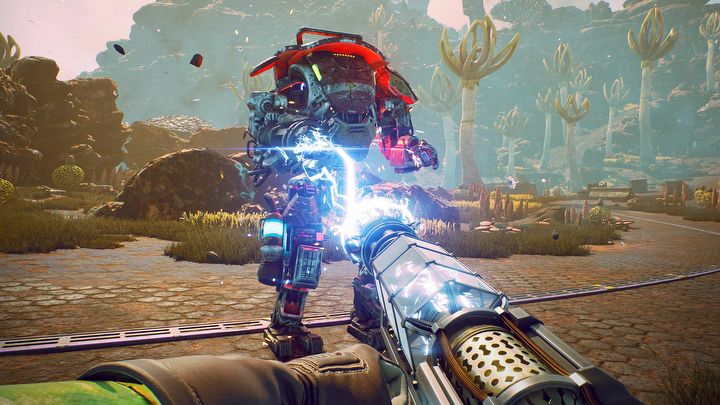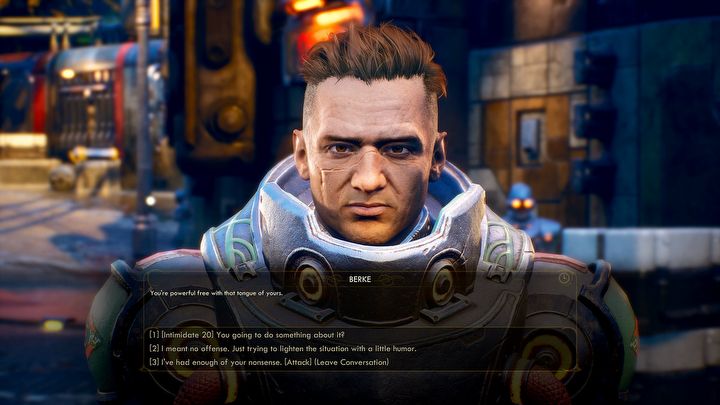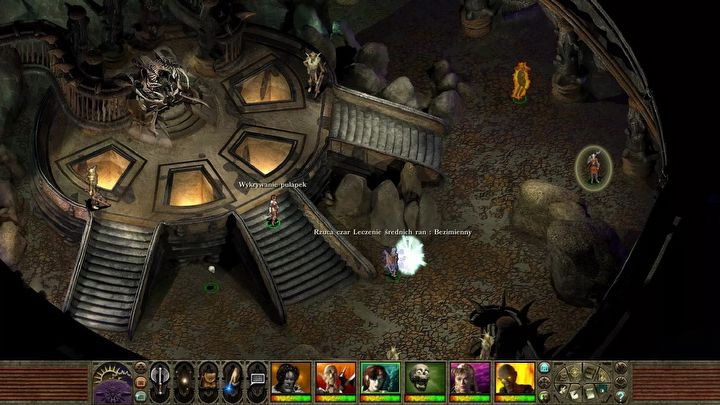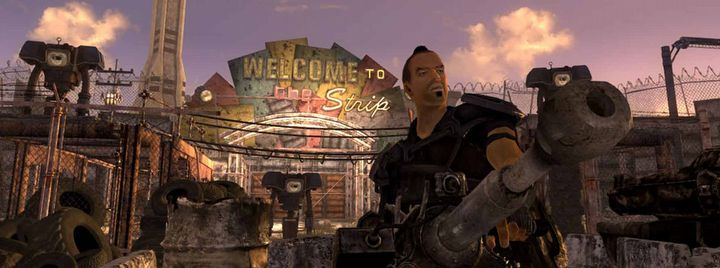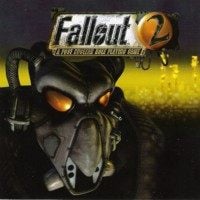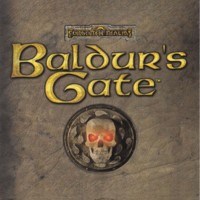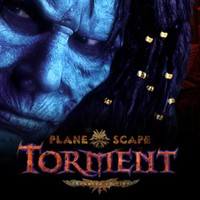The Past. "My greatest triumph? Obsidian survived." Interview with Feargus Urquhart
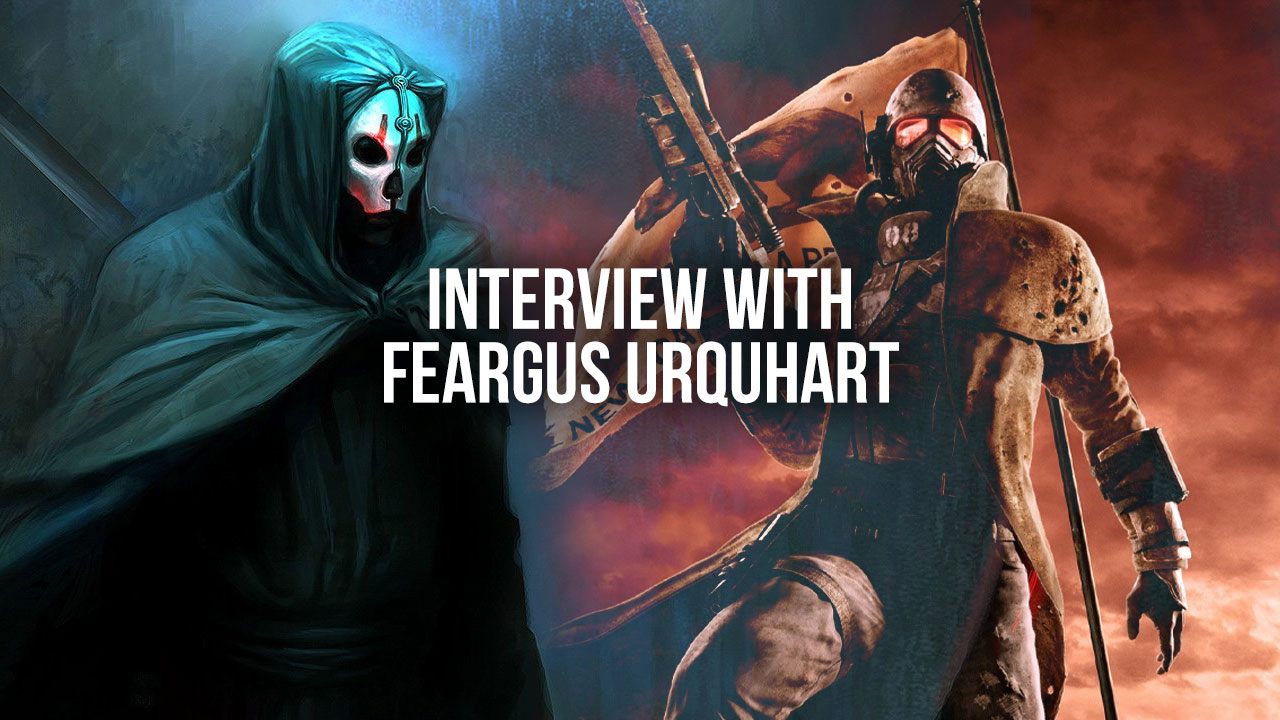
The Past
HS: I get it, the theme of responsibility is really strong in this one. And now, we’re slowly getting close to the more dangerous question. But first, something about you. Games are a collaborative effort, but how much of Feragus Urquhart was in Obsidian, Black Isle and earlier Interplay’s games?
FU: My job through my career has been the business, the people. It has been figuring out what is the box that we need to go to in order to plan accordingly. I have had some lower-level impact on games. Sometimes I have worked as a manager on them. I was the lead designer of Fallout 2. I ran a Combat Strike Team for a while. I was in charge of the UI in one game. I was putting all of the art assets into Knights of the Old Republic 2 for many months. Probably the largest impact I’ve had on a game that people saw was with Fallout 1 and Fallout 2. I wrote dialogues, created items, designed maps and a lot of that stuff. My biggest influence through the years has been helping people figure out what it is that we’re going to go make.
I often use Planescape: Torment as an example. In 1996 I took over the RPG division and I was trying to figure out what was going on. There were at least three Planescape games being made. Without enough people to work on any of them [laughs]. I’ve come to the division having already worked with Bioware on Shattered Steel. It wasn’t done yet. We were just signing them up for what would become Baldur's Gate, at the time we were calling it Iron Throne. What I did with Planescape: Torment was saying “We need to use the Baldur’s Gate engine, let’s make it more character-focused rather than party-focused. A lot of it should take part in Sigil, The City of Doors and you need to go to at least three Planes, because it’s Planescape. We can’t not go to Planes.” There was more, but ultimately I did that. The game that the team went with wasn’t the game that I would’ve made if I was the game director, but they fulfilled those things. The way they did it is what made Planescape: Torment so awesome.
HS: So, basically, you’re responsible for the overall shape of one of the most bizarre and mind-blowing RPGs out there.
FU: [Laughs.] I should get a little credit, but ultimately it’s not a lot of credit. The only other thing I did on a Planescape was combat. There’s a lot of criticism of combat in Torment. They said it’s really secondary and things like that. Three months before we shipped the game, I came in and I made combat a lot better [laughs], but I was only able to get it to that point. I focused a lot on leveling and making it work well for warrior, thief and mage. I did a lot of that nuance, but the story and the characters and a lot of that was all Chris. I mean, there were very minor things I had to tweak at the end, but the rest was Avellone.
HS: But you pushed it in the right direction.
FU: In terms of story, characters it was all him. I’ve just went and played the first two hours of Torment again to see how we did stuff back then and it was very interesting. Chris did such a good job of making it interesting and just transparent enough in terms of the world, rules, and all that kind of stuff. You were introduced really slowly, little by little, but again, you were getting that flavor. You totally got into it. How we did that was amazing. As for the other example. It’s about The Outer Worlds.
We talked a lot about what we’re going to make and we very specifically got into this area of sort of a hard SF. It was like the late 80’s, early 90’s SF, very Alien-inspired. Not in the way that you’re going to kill aliens, but from the standpoint of that kind of chunkiness. I’ve written a lot about creating this dystopian world. I had seeds of ideas and Tim and Leonard ran with it. And changed 99% of it. But again that was a focus for drawing a box in the beginning. I think it was important to me with Outer Worlds that we went to multiple planets to meet what it would feel like an SF game. That was something I pushed on.
I have more stories like that, but a lot of what I do is looking at the teams and understanding the makeup of the team. Asking the questions, making sure if we have the right number of people. Running these big teams now is very hard. Game director is in charge of a hundred people. When they start the job, they maybe know 50 of them. So I may know more of them than the director does. A lot of that job is steering those teams to get the right people together, the right focus. The last things that I focused a little bit more on recently were art and lightning. We were so focused on the stories so much that we missed the outward presentations. I see this as one of my responsibilities – to make our games received well. To make our games look pretty good. So those are some of the impacts.
HS: So how hard is it to manage all those crazy, charismatic artists, writers, creators?
FU: I mean, they’re people, right? You want very smart, creative people, who believe in what they’re doing. They’re sometimes hard to work with, but you want that. That’s the deal. You want the pods of those people doing their own thing within the broader box and guidelines that we have. It can be frustrating to work with people who have strong opinions, but stuff like that makes a good game. In essence I can wake every morning and be frustrated, but that’s the job. I can complain about it to friends just to get it out of my system, but in the end it’s nothing I would ever change. That’s the agreement we had at the studio level – to have with teams and the subteams.
Let’s go back to the Torment example. There were those things that I wanted them to do. Baldur’s Gate engine, more focus on a character, go to three planes, be in Sigil. I checked in a month ago and they did not have anything in Sigil. They may had a lot of reasons why that’s the case. And they felt very strongly about it. I said “Ok, let’s talk about it.” That’s what I always do. We talk about it, but you have to remember that you cannot change the core things about our social contract. We give you incredible freedom within the mentioned box, but that’s the box. If you want to change the box, if we’ve talked about it first, you can go off and do it. That’s where the most friction occurs between teams or parts of teams. Either the guidelines are not clear, which creates frustration, or the guidelines are clear, but the people have moved off them without talking about it. But that really is how you manage those large teams.
You have to get those very few, clear guidelines and you are always checking the game against those guidelines. It’s human nature to move on and forget, so my job is also to say “Hey, this is what we’ve all said and wanted to make. If I get the game today and compare it to these six things – three of them are perfect, two are somewhat ok, and with the last one you’re way off, so what’s going on?” It sounds very simple, but you can’t have a very complicated system if you want to manage large teams.
HS: Did you have to make tough decisions, choices? Were there some failures, hard times that reshaped you either in terms of management or design? The history was rough at times.
FU: I will go back to Fallout 1. Towards the end of the game, I wanted the player to get rewarded for doing some stuff. I had to create what we called “The Turbo Plasma Rifle,” which was the plasma rifle that took one less Action Point to use. The problem was that the amount of damage you could do per AP was way off the charts. It made that part of the game too easy and it was too late for us to understand. So, I personally unbalanced Fallout at the end of the game.
So, I always reflect that little changes can have a big effect. But on the flip side, and another example from Fallout, is I held the game at the end to change the bargain equation. It was the effect of your barter skill on prices. I held it because I was doing all the math. The economy towards the end of the game would be a disaster. It would seem awesome to the player, because if they pumped all these things to the barter, they’d be getting things for almost nothing. Almost for free. So we held the game and made the curve that flattened out how much the skill would affect prices. It was the right decision, it kept the economy functioning better towards the end of the game. That was a good lesson for knowing that it’s ok to hold games to fix a thing that may or may not seem minor.
I learned a lot between Baldur’s Gate and Fallout 2, they shipped quite close together. The latter one came out very buggy. Way much buggier than we’d thought. That was the lesson in obtaining good information from QA. In asking questions like “Do we have enough testers? Are they testing the right thing?” And five, ten, fifteen other questions. That was a thing that you could wind through a lot of our games. People make the joke that we’re “Bugsidian.” We’ve worked our asses off over the last 10-12 years to ship games that were not buggy. And our game has not been buggy.
But I recognize it because we had a reputation, so any bug in our game is horrible. I don’t want to feel like a victim or something, but sometimes I feel, like we get graded a little harsher, whether there are bugs in our games or not, but we put a ton of tests on our games, we have great lead testers – and that’s something I had to learn through my career. It’s funny, because I started as a tester. But for now it’s more and more focused and understanding what’s going on with our bug list and how we manage it. That’s an ongoing lesson. It’s important on my level. How often people in my position or higher should be reviewing the data in bug lists? That can tell you really quickly if your game is ready to ship.
The last lesson that I’ve learned was on South Park. We were working with Matt Stone and Trey Parker. They had a vision for combat. It’s about kids playing an RPG game in this South Park world. In Matt and Trey’s mind, the kids should just be hitting each other with sticks without many crazy abilities. For a long time, we were following that rule and combat just never felt like it’s as fun as it could be. And one day I talked to the combat team.
Matt and Trey stuck to their idea, so I just said to my team that we’re not going to do that. We’re going to make abilities, we’re going to make it crazy, fun and then we’re going to work on this for a couple of months. Then I took the result to Matt and Trey and explained that “We didn’t do what you wanted us to. And this is why. I will give it to you to play for one hour and then I come back, and you can tell me what you think.” So, I came back and they said it was the right decision. We had a lot of fun, it was the right level of difficulty. The abilities felt like the kid’s fantasy. I take that as a lesson that you have to go in your direction even if you’re told not to do so. You have got to try. With the Stick, I knew and the team knew that the combat had to be that way. We had to take the chance.
HS: So, sometimes you’re the darling-killer.
FU: Yeah.
HS: So in terms of tough decisions. How hard was it to survive two difficult eras – the collapse of Interplay and that time, when Obsidian was almost closed? What did it change in you as a creator and manager – or in the games you’ve made? (by the way, Pillars are awesome)
FU: [Laugh] Thank you. So what did I learn?... Like anyone, I have fears, but also I may have a lack of certain other fears. Like maybe I’m just optimistic? I just believe that we’re going to figure it out. Of course, in the middle of the night I’m sitting there sweating and tired, thinking “Forget it, I’m waking in the morning and packing it all up.” But in the end, I always try to think we’re going to make it awesome, we’re going to get there.
Looking at Interplay – it was a conscious decision to leave because I didn’t think we could be successful anymore. I lost the desire to try to do it there and I didn’t feel we were supported. We made all the money, but I felt that we were supported the least. It was a fight. I’ll share one example. People were working on two-year old computers. In today's work, we can all work on two-year-old computers and it’s totally fine. In 2003 that kind of computer was a disaster for a game developer. I went and got 10 new computers approved, and approved they were. I thought they were purchased. They didn’t show up and I found out that the purchase had been canceled, so I went back, got them reapproved, and then they were canceled again.
So, it was decided that the director of technology in Interplay would have to approve the computers. He wanted to go through and know what we put in the computers. Running a dev studio back in a day, you intimately knew every part of every computer. When we started Obsidian, we even made computers, I can build a PC. But back then at Interplay, it was the frustration of not being trusted and not being given enough money to buy ten computers. For a team of sixty people.
I say it that way is because it made it easy to leave. It’s almost like they kicked me out the door. Sometimes people tell me that it must have taken a lot of courage to leave the Interplay. It did, of course – my wife was pregnant and we just bought a new house a couple of years before. There were a lot of things changing, so it took courage, but they also made it easy for me to have that courage.
As for Obsidian. Of course, we lost a few projects in our time. When Microsoft canceled Stormlands, that was the hardest, because we were going to work on an Xbox launch title. It was like signing up for the holy grail of games. Original IP for a console launch... aaand it got canceled. We just didn’t get a lot of backup then and we got to do a big lay off. We laid off people that had been with us for a long time. I still regret that. We had to make decisions very quickly. It was a hard time. But we got through it. I have to give Josh Sawyer and Adam Brennecke a lot of credit for pushing me to do the Kickstarter. I didn’t know what’s going on with that totally, but they did. And it was super successful.
I don’t remember when this meeting took place, but we were looking ahead a year and we were starting to worry about how to design big games. Because we needed to go and make publishers give us 50-60-70 million dollars. That’s a hard thing to get somebody to give you 50 million dollars [laugh]. And I asked “What are we going to do? Do we either swing for the fences? We’re going to put it all into it, or we should wrap it up? This can’t be something in the middle. It would mean that we’re going to limp a long and end up in a crappy place.” We all agreed, we’re going to put it all into it. That was a super important thing for me to do. It aligned us to say “Hey, we’re really doing this instead of thinking: how do we close this down?”.
HS: It was a lot of tough choices [Feargus nods]. But after all, when I look at Obsidian, it worked.
FU: Exactly.
The Present
HS: So, in spite of this all, what was your greatest triumph?
FU: One greatest triumph? We survived. That’s it. We survived. We’ve been acquired, so we’re not independent anymore, but overall – there’s not a lot of independent developers that survived that long. Next year’s our 20th anniversary as Obsidian. I would say the other thing that makes us proud is that you look across all our games and I’m proud of all of them. For real. Are some of them better than others? Of course. But I’m proud of all of them and the teams that made them were proud of them. If I made that possible for teams to be proud of what they made then that’s my triumph. I get enjoyment from seeing their pride and happiness from what they’ve made. And, of course, seeing people react positively and enjoying our games. Or aspects of our games sometimes.
If I go all the way back, starting with Fallout or even some of the original games I worked on – I’m proud of Rock On Racing on Sega Genesis. Because I had to learn how to sing a song. I’ve never licensed a song before – I’d figured it all out. And then, when you go through all those Interplay years we had such a great relationship with Bioware and I worked super hard at that. And this gave the world Baldur’s Gate and Baldur’s Gate 2. My support of the Fallout 1 team. I doubled their team, I got more people to help Fallout become what it is. I mean, it’s just management. Fallout wasn’t because of me, I just helped. There’s a lot of triumphs. But I’ll go back to the fact that the triumph of Obsidian is that we survived and kept on making the games that we love making.
HS: The last question, the dangerous one. I have to ask! Is there any chance for this hypothetical new Fallout from Obsidian to occur?
FU: We’re not working on it right now, our plate is pretty full with Avowed, Grounded and Outer Worlds 2. I don’t know when we’re going to start talking about new games, maybe towards the end of next year [conversation took place before Christmas 2022 – ed. note]. We just have to see what’s going on. That’s the best way to say it. There’s nothing in the plans, nothing on the piece of paper that says that. But I’ll stick to what I said. I would love to make another Fallout before I retire. I don’t know when that is, I don’t have a date of my retirement. It’s funny – you can say I’m already 52, or only 52. It’s one of those two, depending on the day. My hope is that’ll happen, but we’ll have to wait and see.
